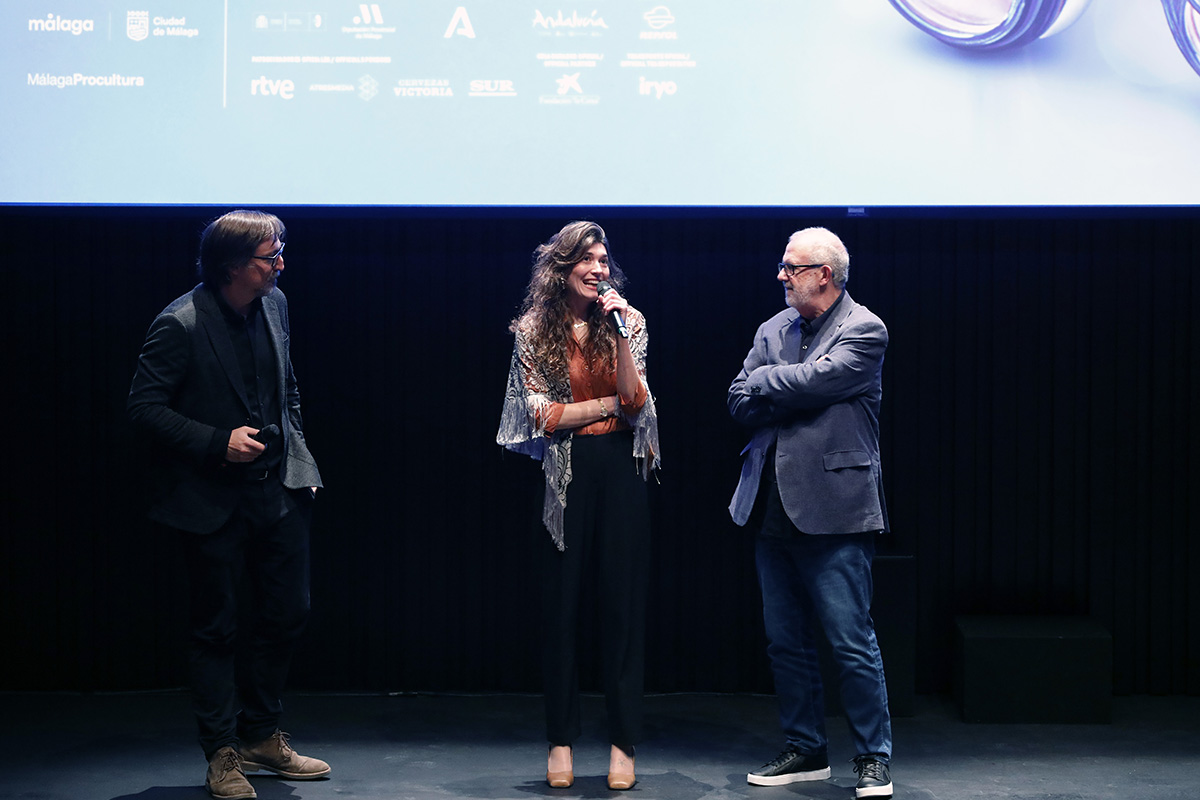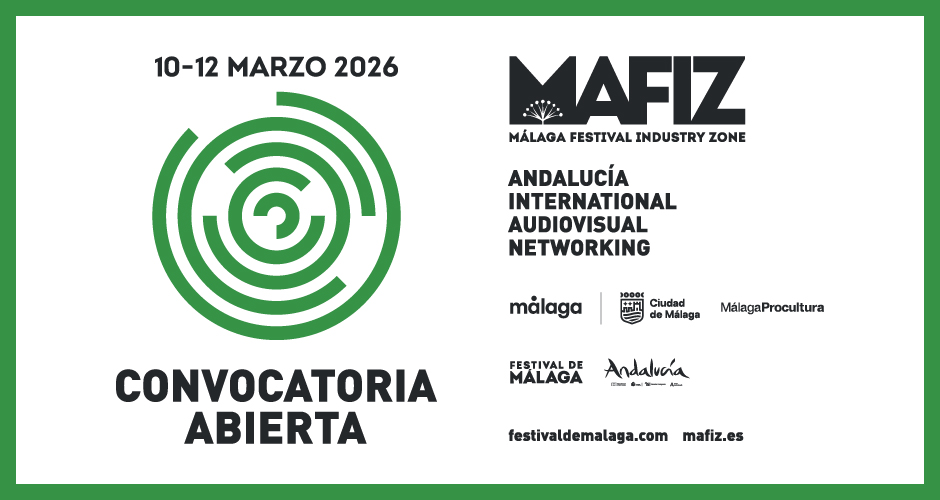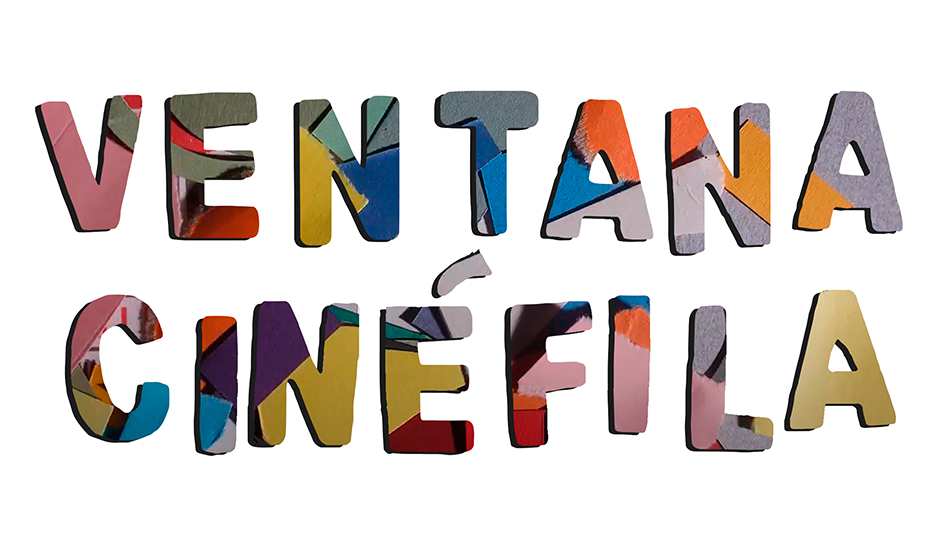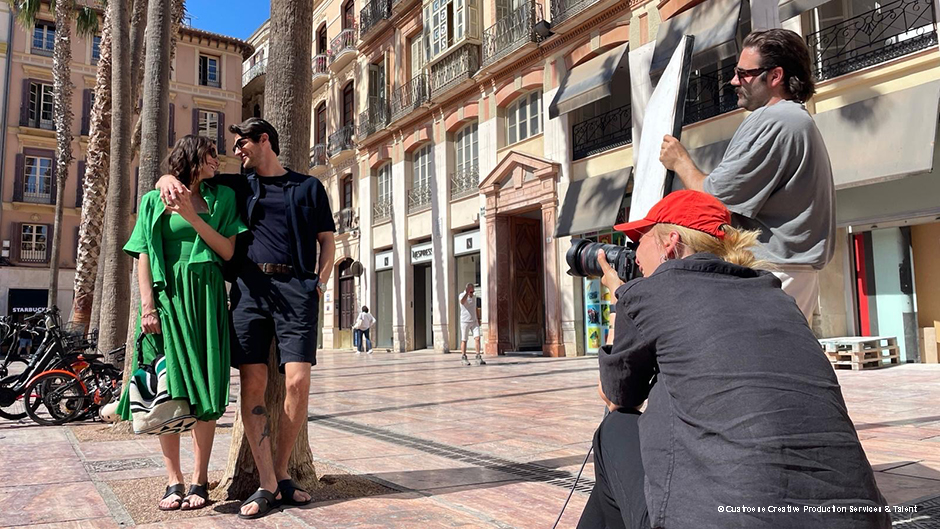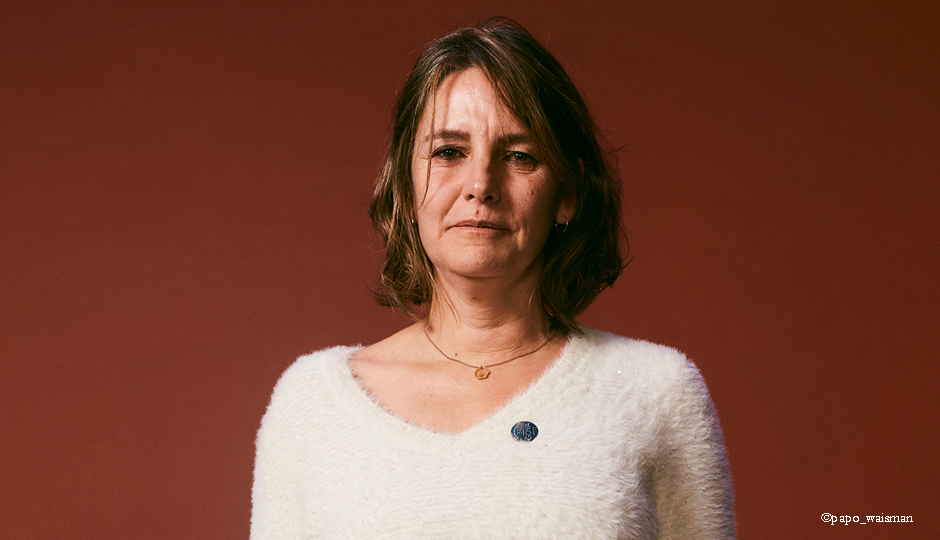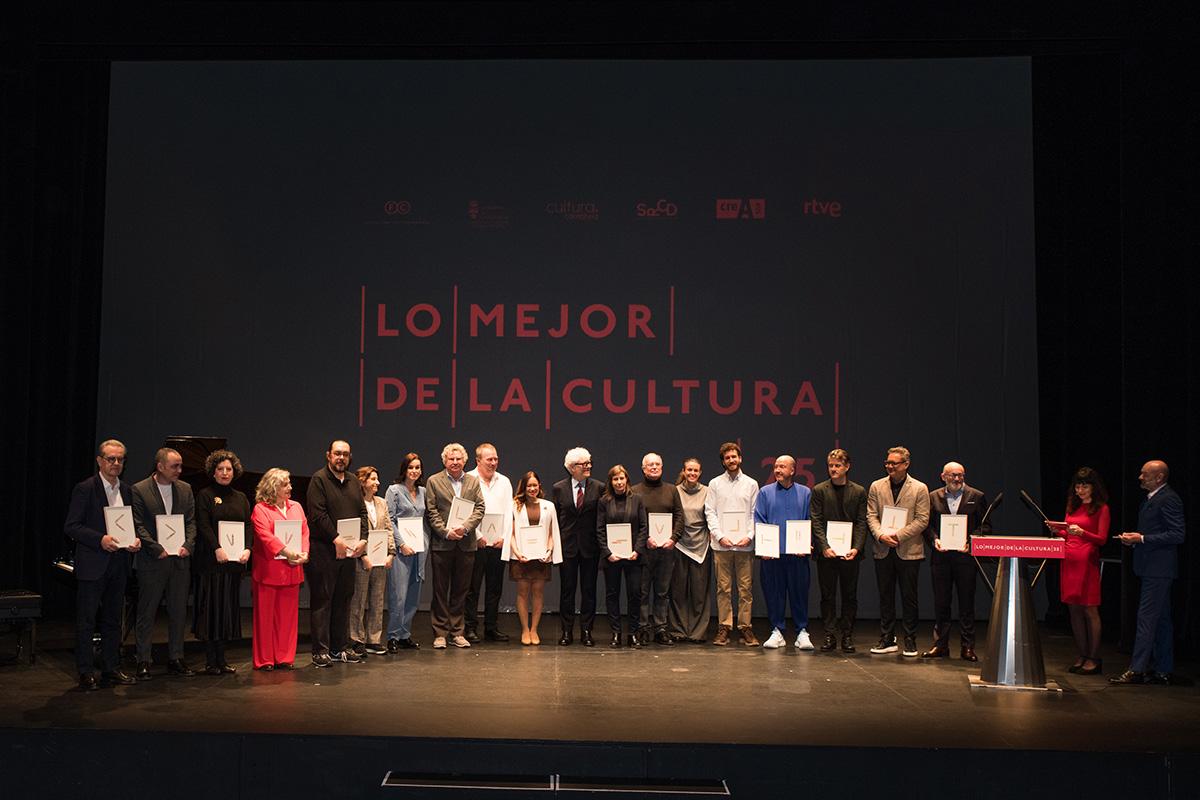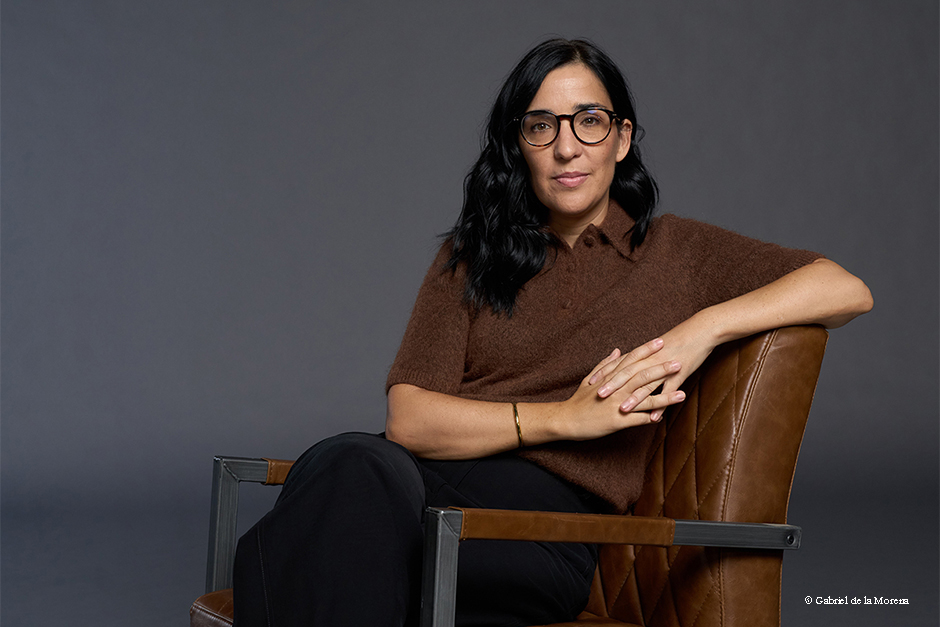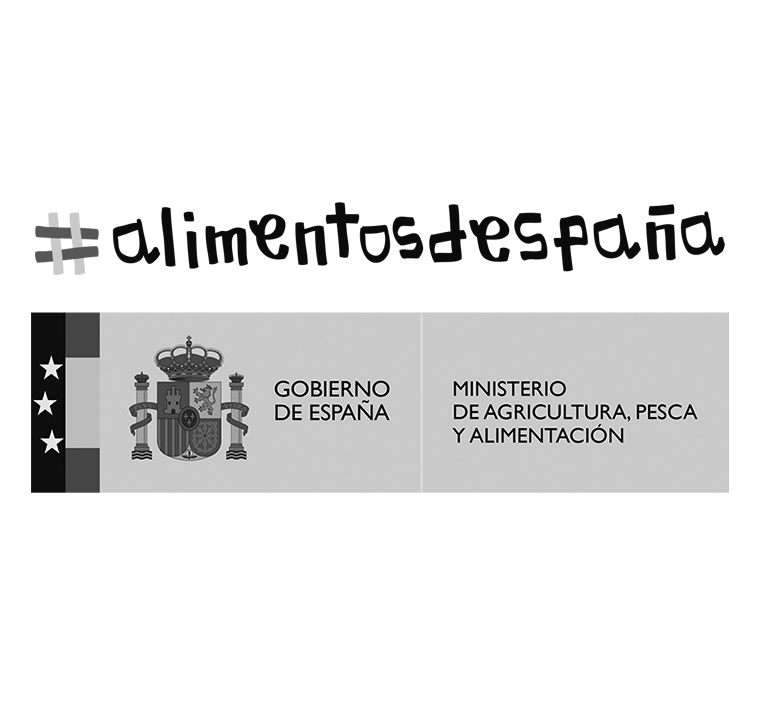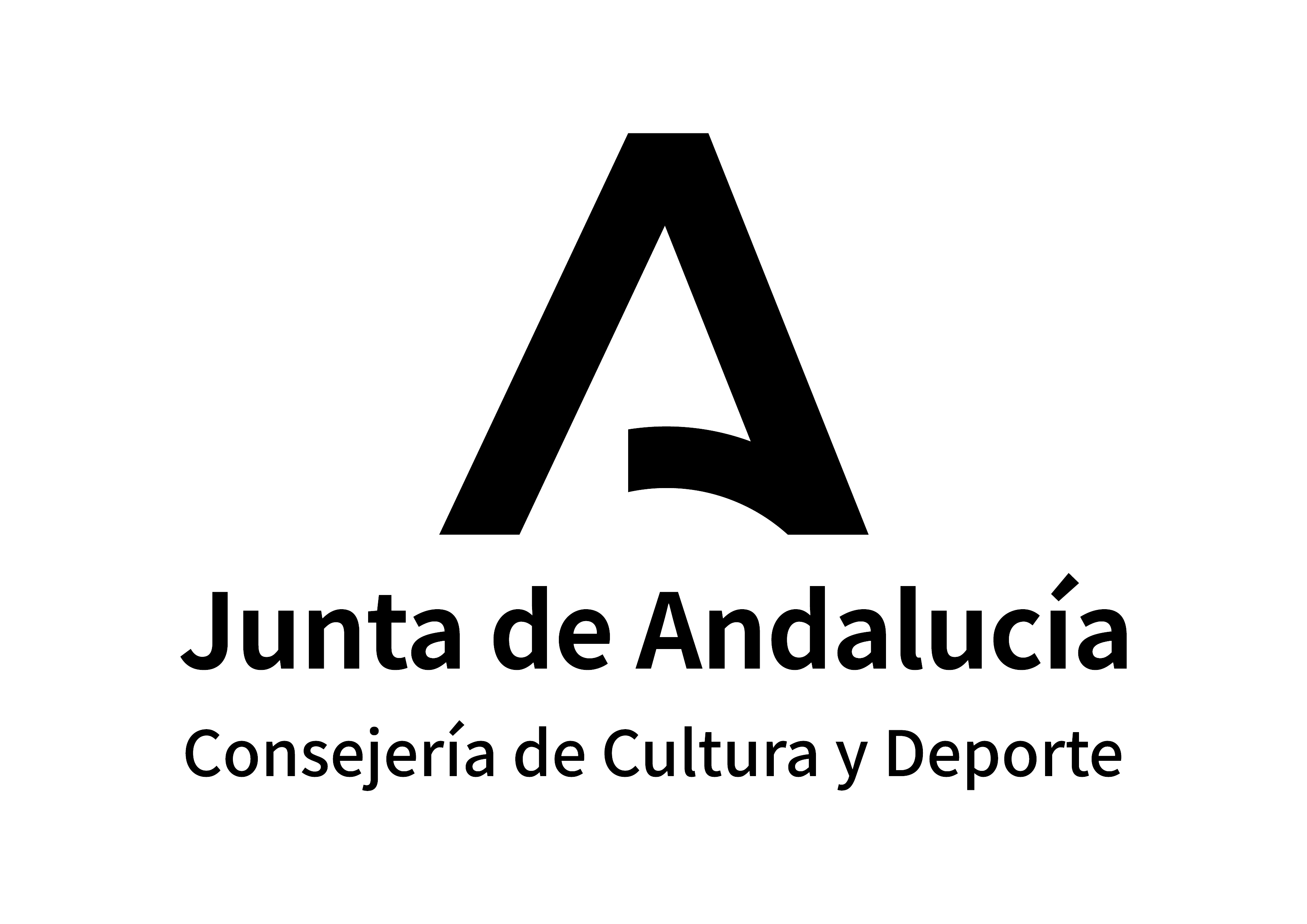Six documentaries in the Special Screenings section premièred at the Festival de Málaga
Cinema and memory: documentary stories exploring art, literature, sport and identity
This Saturday, 15 March, the Documentary Special Screenings section of the Festival de Málaga hosted the screening of six documentaries ranging from dance to conceptual art, literature, boxing, basketball and the world of Berlangui. They have offered the public a journey through trajectories marked by talent and uniqueness.
'La Argentina. Lejos de las palabras': la memoria de una leyenda de la danza
Directed by Patricia Medina, this documentary revives the figure of Antonia Mercé "La Argentina", one of the most influential dancers of the early 20th century. Through archival footage, dramatisations and the performance of a young dancer from the Spanish National Ballet, the film reconstructs his legacy and his impact on Spanish dance.
The screening was attended by director Patricia Medina and executive producer Adriano Morán Conessa.
"The idea for this documentary arose as a result of bringing to light this figure who had been forgotten," said Medina, who highlighted the role of the Fundación Juan March archive as a fundamental source for the film.
For his part, Adriano Morán Conessa expressed his gratitude to the Festival de Málaga for hosting a project that he describes as "very small", as "it was made by three people" and he considers its realisation "a small miracle".
'Santiago Sierra: The Finger in the Wound: provocación y crítica social'
Enrique Palacio's documentary analyses the career of the artist Santiago Sierra, renowned for his work of social and political denunciation. With a combination of performances, videos and photographs, the film presents an in-depth look at his impact on contemporary art.
The screening of 'Santiago Sierra: The Finger in the Wound: provocación y crítica social' was attended by the artist Santiago Sierra, the director Enrique Palacio and the producer Sergio Muñoz. "The challenge has been to maintain coherence in the approach, because Santiago is a very coherent person and, therefore, I as director also had to be coherent,"Palacio said.
'Temps Mort': la historia desconocida de una estrella del baloncesto
Fèlix Colomer presents the life of Charles Thomas, a promising Spanish basketball player in the 1970s whose career was cut short by injury. The film, based on the investigation of journalist Carlos Jiménez, reconstructs his rise, disappearance and the unexpected turn his story took decades later.
The screening of 'Temps Mort' was attended by the director Fèlix Colomer and the screenwriter Carlos Jiménez.The director says that his interest in this story was born the moment he heard about it: "Carlos (the screenwriter) came home and told me the story of a basketball idol thought to be dead. Doing the interviews I sensed that there was more to it."
For his part, the screenwriter, Carlos Jiménez, said that it had been "very difficult to see the documentary for the first time on the big screen." Excitedly, he confessed that he "became obsessed with the story of Charles Thomas."
'Berlanga, fanáticamente contradictorio': el universo del maestro del cine español
José Luis García Berlanga is the author of this documentary that explores the life and work of Luis García Berlanga through unpublished scripts, personal objects and testimonies of those who shared his career. A journey through memories that provides a new perspective on the filmmaker.
Present at the screening of 'Berlanga, fanáticamente contradictorio' was the director José Luis García Berlanga, son of the filmmaker, who took the stage to present the film. "It's a window to discover unknown aspects of my father that I'm sure will encourage you to watch his films, if you haven't seen any of them, or to continue watching them, because they are films that are still very funny and very current." An opportunity to understand Berlanga's brilliant and contradictory mind, exploring not only his work, but his way of seeing the world.
'Almudena': el retrato íntimo de una escritora imprescindible
Azucena Rodríguez directs this documentary dedicated to the memory of Almudena Grandes, one of the most influential writers of contemporary Spanish literature. Through her own words and the testimonies of her closest circle, the film reconstructs her literary legacy and her way of understanding life and writing.
The screening of 'Almudena' was attended by the director Azucena Rodríguez, the sister of Almudena Grandes, Mónica Grandes, and the producer Mariela Besuievsky. Also in the audience was the former Minister for Public Function, Magdalena Álvarez.
Mariela Besuievsky stressed that the process of creating the documentary "has been a long journey that began many years ago" and that it has been "very moving" because with this film they wanted to "revive Almudena in some way". Mónica Grandes, visibly moved, expressed her gratitude on behalf of her family, stating that "they were not aware of how much she was loved".
For her part, Azucena Rodríguez said that "the luck of her life" was to be a friend of Almudena's and that her intention was to have made this documentary "when she was alive". She pointed out that, in making this film, she has also made "a duel", but she invited the audience to watch it with a positive attitude: "To smile and spend some time with her."
'Urtain, el ídolo de barro': la cara más amarga de la fama y el deporte
Directed by Xavier Baig and Jordi Rovira, this documentary tells the story of José Manuel Ibar 'Urtain', a Basque stone lifter who, with no previous boxing experience, became the most popular sportsman in Spain in the 1970s. His meteoric rise, driven by the Franco regime's search for a national idol, led him to win the European heavyweight title. However, after his retirement, his personal life was marked by alcoholism, financial ruin and oblivion, culminating tragically in his death by suicide in 1992.
Share








